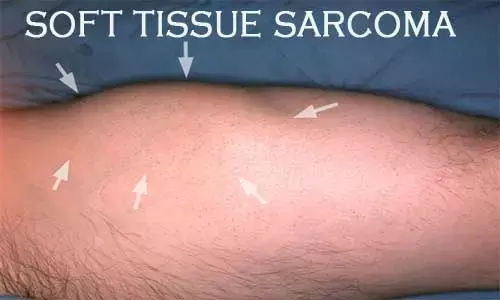- Home
- Medical news & Guidelines
- Anesthesiology
- Cardiology and CTVS
- Critical Care
- Dentistry
- Dermatology
- Diabetes and Endocrinology
- ENT
- Gastroenterology
- Medicine
- Nephrology
- Neurology
- Obstretics-Gynaecology
- Oncology
- Ophthalmology
- Orthopaedics
- Pediatrics-Neonatology
- Psychiatry
- Pulmonology
- Radiology
- Surgery
- Urology
- Laboratory Medicine
- Diet
- Nursing
- Paramedical
- Physiotherapy
- Health news
- Fact Check
- Bone Health Fact Check
- Brain Health Fact Check
- Cancer Related Fact Check
- Child Care Fact Check
- Dental and oral health fact check
- Diabetes and metabolic health fact check
- Diet and Nutrition Fact Check
- Eye and ENT Care Fact Check
- Fitness fact check
- Gut health fact check
- Heart health fact check
- Kidney health fact check
- Medical education fact check
- Men's health fact check
- Respiratory fact check
- Skin and hair care fact check
- Vaccine and Immunization fact check
- Women's health fact check
- AYUSH
- State News
- Andaman and Nicobar Islands
- Andhra Pradesh
- Arunachal Pradesh
- Assam
- Bihar
- Chandigarh
- Chattisgarh
- Dadra and Nagar Haveli
- Daman and Diu
- Delhi
- Goa
- Gujarat
- Haryana
- Himachal Pradesh
- Jammu & Kashmir
- Jharkhand
- Karnataka
- Kerala
- Ladakh
- Lakshadweep
- Madhya Pradesh
- Maharashtra
- Manipur
- Meghalaya
- Mizoram
- Nagaland
- Odisha
- Puducherry
- Punjab
- Rajasthan
- Sikkim
- Tamil Nadu
- Telangana
- Tripura
- Uttar Pradesh
- Uttrakhand
- West Bengal
- Medical Education
- Industry
PET-CT better than bone scintigraphy for staging soft-tissue cancer in children: Study

Italy: A recent study has suggested that PET-CT could replace bone scintigraphy for the detection of metastatic disease in children with soft-tissue cancer.
According to the study, published in the European Journal of Cancer, PET can identify metastatic disease not evident on standard radiology workup (SRW) in a small number of patients due to its higher ability to recognize lymph node and bone involvement. Chest CT is essential for detecting lesions in intrathoracic sites, which can be performed in a one-stop-shot routine examination or on a dedicated chest CT scan.
Initial staging of rhabdomyosarcoma is critical for prognosis and treatment. The standard radiology workup (SRW) includes magnetic resonance imaging, chest computed tomography (CT), and bone scintigraphy. However, the use of 18 Fluorine-fluorodeoxyglucose (FDG) positron emission tomography (PET)/computed tomography (CT) (18F-FDG-PET/CT (PET-CT)) is increasing.
Considering the above, Federico Mercolini, Pediatric Hematology and Oncology Unit, Department of Pediatrics, Bolzano Hospital, Bolzano, Italy, and colleagues aimed to evaluate the impact of PET-CT in the initial staging of patients with metastatic rhabdomyosarcoma enrolled in the European protocol MTS2008.
For this purpose, two authors retrospectively reviewed the SRW and PET-CT reports that compared the number and sites of metastases detected. PET-CT and bone marrow aspirates/biopsies were compared for bone marrow involvement.
Among 263 metastatic patients enrolled from October 2008 to December 2016, 121 had PET-CT performed at diagnosis, and for 118 of 121 patients, both PET-CT and radiological reports were available for review.
Key findings of the study include:
- Among 263 metastatic patients enrolled from October 2008 to December 2016, 121 had PET-CT performed at diagnosis, and for 118 of 121 patients, both PET-CT and radiological reports were available for review.
- PET-CT showed higher sensitivity than SRW in the ability to detect locoregional (96.2% versus 78.5%) and distant lymph node involvement (94.8% versus 79.3%), but sensitivity was lower for intrathoracic sites (lung 79.6% versus 100%).
- For bone metastasis, PET-CT was more sensitive than bone scintigraphy (96.4% versus 67.9%).
- The PET-CT sensitivity and specificity to detect marrow involvement were 91.8% and 93.8%, respectively.
- The mean number of metastatic sites was 1.94 (range 0–5) with PET-CT and 1.72 (range 0–5) with SRW.
- In four patients (3.4%), PET-CT changed the staging from localized to metastatic disease.
"Our findings demonstrate that PET-CT could replace bone scintigraphy to study bone involvement," concluded the authors.
Reference:
The study titled, "Role of 18F-FDG-PET/CT in the staging of metastatic rhabdomyosarcoma: a report from the European paediatric Soft tissue sarcoma Study Group," is published in the European Journal of Cancer.
DOI: https://www.ejcancer.com/article/S0959-8049(21)00448-2/fulltext
Dr Kamal Kant Kohli-MBBS, DTCD- a chest specialist with more than 30 years of practice and a flair for writing clinical articles, Dr Kamal Kant Kohli joined Medical Dialogues as a Chief Editor of Medical News. Besides writing articles, as an editor, he proofreads and verifies all the medical content published on Medical Dialogues including those coming from journals, studies,medical conferences,guidelines etc. Email: drkohli@medicaldialogues.in. Contact no. 011-43720751


